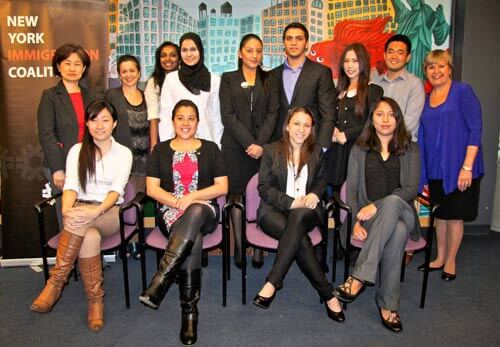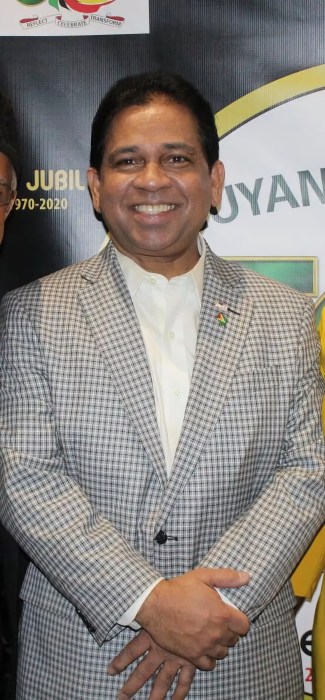High achieving undocumented high school graduates often find the financial obstacles for higher education daunting. Public universities cannot offer them financial aid. Come September, for these excellent graduates, the third round of DREAM Fellowship applications will be available for tuition assistance scholarships. This program is administered by the Fund for Public Advocacy.
The New York Immigration Coalition (NYIC) and the Fund for Public Advocacy introduced the 2013 DREAM Fellowship recipients at NYIC, this week.
The stories they tell are similar while the details differ.
Koreda Griffith came to the U.S. from Guyana when he was 12. Mehdi Mahraoui left Morocco at age seven, as was Ivy Ten Lei when she left Macau, China. The others came from Pakistan, Mexico, Ecuador, Taiwan and South Korea. Some traveled with their parents, for others, their parents arrived years before they were able to join them. Some told harrowing tales of border crossings. All left their homelands to make a better life.
On arrival their parents worked tirelessly in the undocumented immigration shadows. In their homes, if this word was spoken, it was in hushed tones. Other Fellows only discovered their immigration status when it was time to apply to college. The barrier, they were ineligible for federal or state aid.
Bill de Blasio, a key Dream Fellowship supporter from its conception, attended the NYIC event. After mentioning that his wife’s family is from Barbados, he spoke of how the vitality of New York City comes from the energy in its vast immigrant community. “These young people deserve the same chance as any of their peers,” he said. Recognizing how this program was a step to “right this wrong”, he summed it up, “This class of DREAMers represents what’s best in New York City, and investing in them will help our entire city succeed.”
Thirteen of this year’s Fellows applied and were accepted to Obama’s Deferred Action for Childhood Arrivals (DACA), implemented last year, a program that gives temporary relief from deportation for undocumented children of emigrants who arrived before their 16th birthday and who are in school.
DACA provides work permits for these undocumented youth and for the time being, these able students can pursue their studies without immigration status worries.
The 14 fellows shared stories of their struggle to overcome the odds and continue their education, keep their families together, and pursue their dreams.
One young Ecuadorian woman, now studying political science and psychology, told an emotional story. She mentioned how arbitrary the law was; she missed the cutoff for DACA by four months and while she has come out of the immigration shadows, her mother still has fears of deportation.
The DREAM fellowship also provides for a semester-long leadership program and an internship program, usually with community organizations such as La Union in Sunset Park or La Fuente in upper Manhattan. Maria Vera’s goal is to be an occupational therapist and is interning at the New York Commission on Public Health System.
The fellows are also involved in the immigration reform movement, several having traveled to Washington to share their stories.
For Korede Griffith, that 12-year-old who came from Guyana. After his graduation from Brooklyn Preparatory High School, he started John Jay College and is now in his second year, hoping to be a physiologist in the criminal field.
Of the Fellowship he said, “Without the funds that I received from them, I would not be in school right now. The leadership trainings that I attend also provide me with skills that may help me become a better person.” Griffith is interning at the Cabrini Immigrant Services office. “I am really staying in the loop, on the progress of the immigration reform and everything surrounding it. I am also able to help other people such as myself by giving them whatever information they may need to be successful.”























